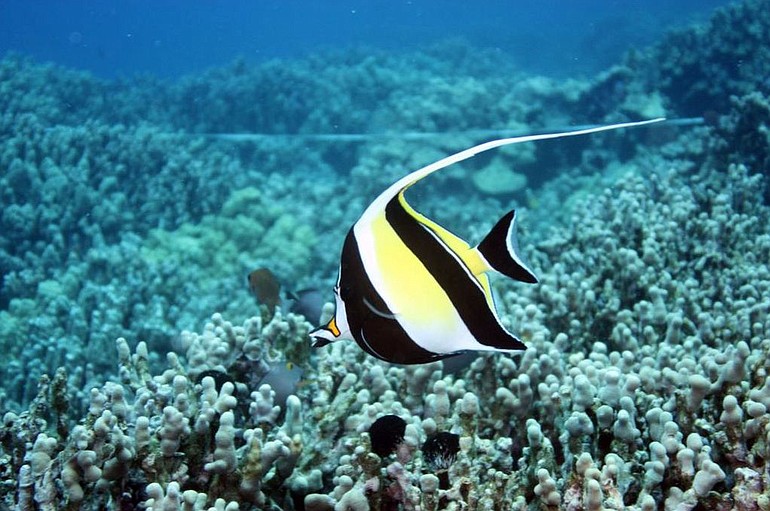Saving the world’s coral reefs will require the United States to exercise its regulatory and market muscle to reform unsustainable harvest practices, a Washington State University Vancouver professor writes in the journal Marine Policy.
Brian Tissot, a WSU professor in the School of Earth and Environmental Science, co-authored the paper with 17 others who participated in a symposium last year in Washington, D.C.
“The U.S. should assume its role as an international leader in coral reef conservation and take steps to reform the international trade it drives,” the authors concluded.
Tissot and others called for reforming U.S. laws related to the importation of sea life taken through illegal or destructive collection practices such as the use of sodium cyanide to stun fish. It also calls for improved enforcement of import laws; market-based certification programs to ensure sustainable practices overseas; and the promotion of conservation practices in countries such as the Philippines and Indonesia.
Tissot, in an interview, said there is nothing inherently wrong with the international trade of coral reef wildlife — as long as it’s effectively regulated.
“There are a lot of collectors that are very ecologically conscious,” he said. “When it’s largely unregulated, you get people who aren’t good mixed in with the people who are.”
Tissot, who has taught at WSU-Vancouver since 1998, specializes in the study of coral reefs and has testified widely about their value as the most diverse ecosystem on earth. Ironically, the public’s appreciation of coral reefs is contributing to their decline.
“A massive number of organisms are being taken off the reefs,” Tissot said. “These are areas already stressed by climate change and human impacts.”
Impact on fish
Trade in coral reef wildlife annually removes up to 30 million fish, 1.5 million live stony corals and more than 2,500 metric tons of shells from at least 45 countries, according to the policy paper. The United States is the biggest importer by far.
“Activities that we do in Vancouver are influencing these regions,” Tissot said.
Saltwater fish, coral jewelry, fine shells and other curios bought and sold in the U.S. often originate from suppliers overseas who are motivated by short-term economic gain, Tissot said. Subsistence fishermen rely on the bounty of the ocean to feed their families, he said, but coral reefs are sustaining long-term damage.
“This trade is actually making it worse,” Tissot said.
The authors of the paper write that current U.S. importation laws and regulations mainly affect flora and fauna listed as imperiled under international trade conventions. Those protections cover only “a few groups of the thousands of coral reef species in the marine ornamental trades,” the authors wrote.
Tissot and the other authors want to reverse the burden of proof, so that licensed suppliers certify that they aren’t contributing to the eradication of coral habitat. It would be similar to certification programs that undercut the market for diamonds, which fuels deadly conflicts in Africa.
“The idea is to put the pressure on the people who are exporting to do it right,” Tissot said.
For his part, Tissot said, he gave up collecting saltwater fish 20 years ago. Instead, he studies the fish while snorkeling in their natural tropical environment.
“I used to have a lot of marine fish,” he said. “I was a big hobbyist. But it got to a point where I didn’t feel comfortable doing that any more.”
Erik Robinson: 360-735-4551, or erik.robinson@columbian.com.



